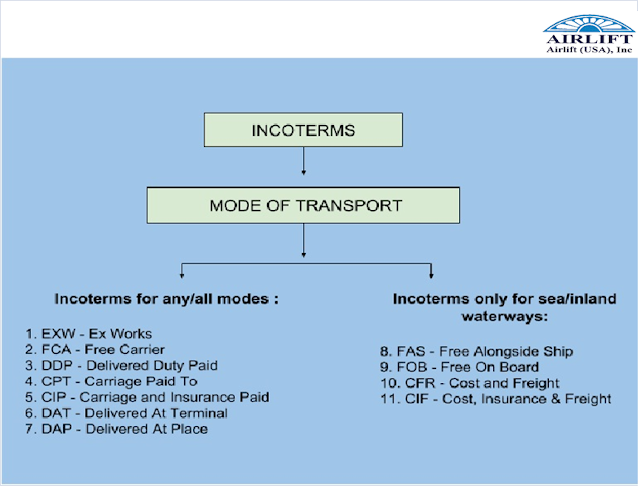INCOTERMS - DETAILED EXPLANATION

INCOTERMS 101 continued... In the last blog, we tried understanding Incoterms as a concept. Now let's bring you up to speed on what each of the 11 terms mean by categorizing them based on the mode of transport. INCOTERMS FOR ANY MODE/MODES OF TRANSPORT: 1. EXW (Ex-Works): The seller has to only make the goods available at his premises / agreed location. From then on, all risks and costs are borne by the buyer. 2. FCA (Free Carrier): The seller is responsible for loading the goods, cleared for export, onto a buyer-nominated carrier at the seller's premises/specified place.The delivery takes place once the goods are loaded onto the carrier at the seller's premises or when the loaded carrier arrives at the agreed location. Once delivered, all the risks and costs get transferred to the buyer. 3. DDP (Delivered duty paid): This is the exact opposite of EXW. Here, the seller is responsible to deliver the goods from his premises to the buyer's pr...


